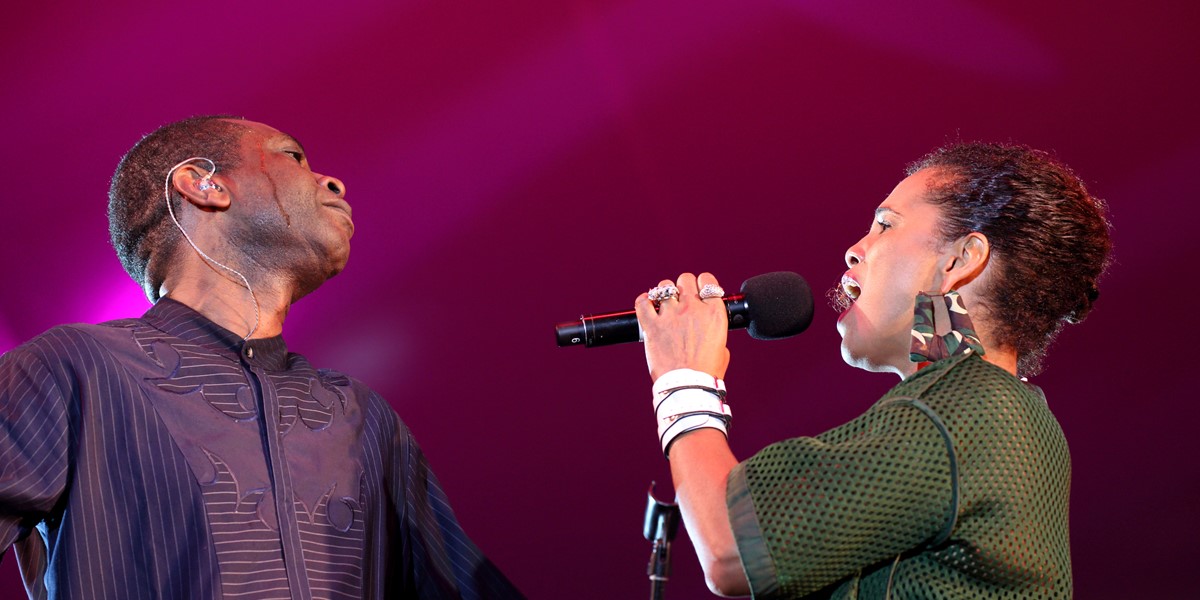Hugh Masekela Profile
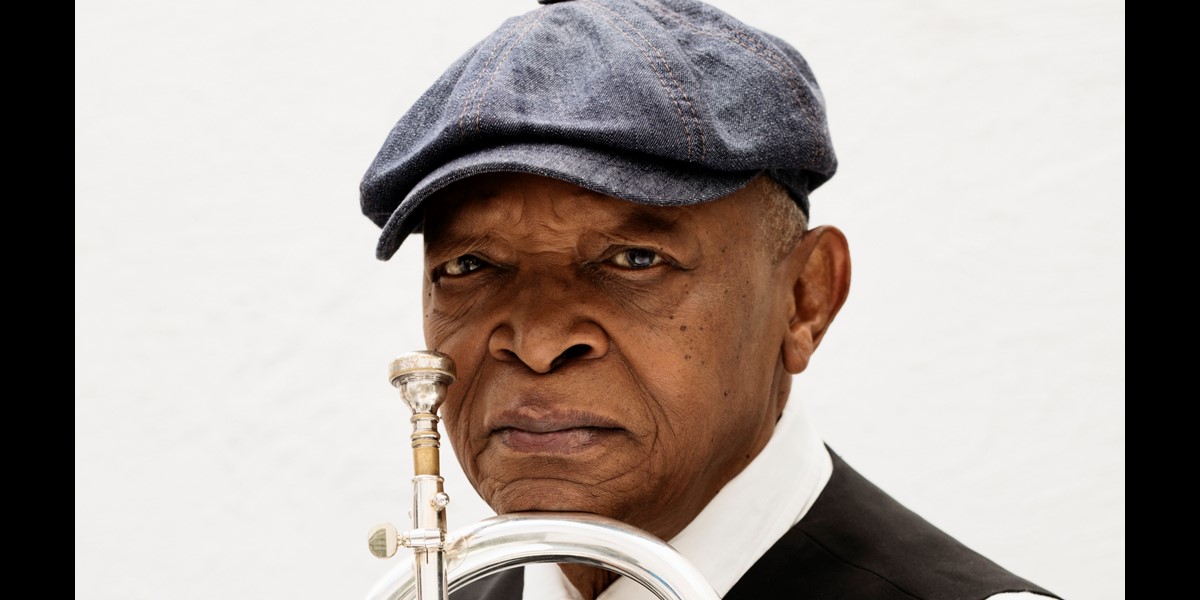
(Photo: Brett Rubin)
- Born: 1939
- Died: 2018
- Related Artists: Miriam Makeba, Ladysmith Black Mambazo, Abdullah Ibrahim, Hugh Masekela
- Related Countries: South Africa
- Related Genres: Township jazz, Mbaqanga
Known as the 'father of South African jazz,' horn player Hugh Masekela was one of South Africa's finest musicians who used his music to protest against the apartheid regime
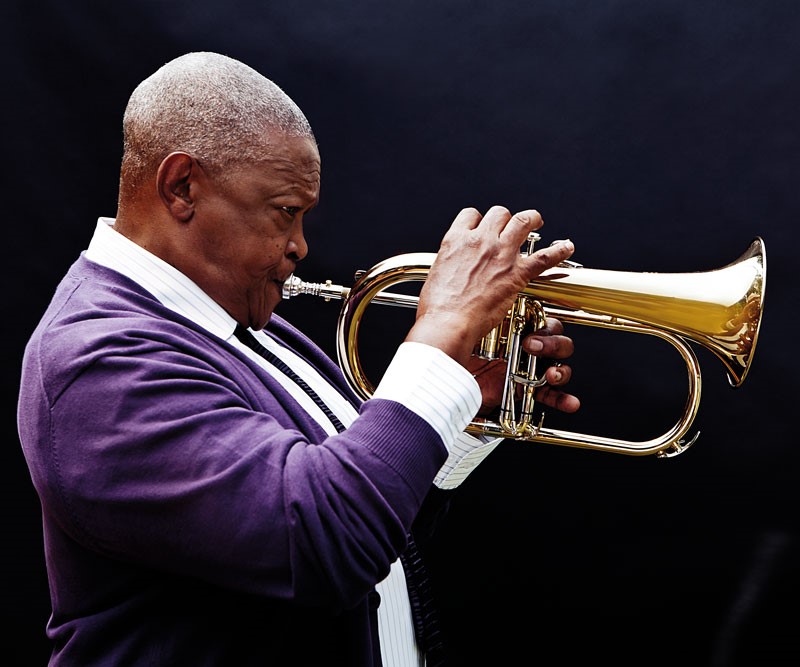
Hugh Masekela (photo: Brett Rubin)
There’s an extraordinary photo of the 16-year-old Hugh Masekela taken in the South African township of Sophiatown in 1955 on the day he received a new trumpet sent from America by Louis Armstrong.
The image of him leaping for joy with the instrument waved triumphantly above his head personified so much about both his music and his spirit.
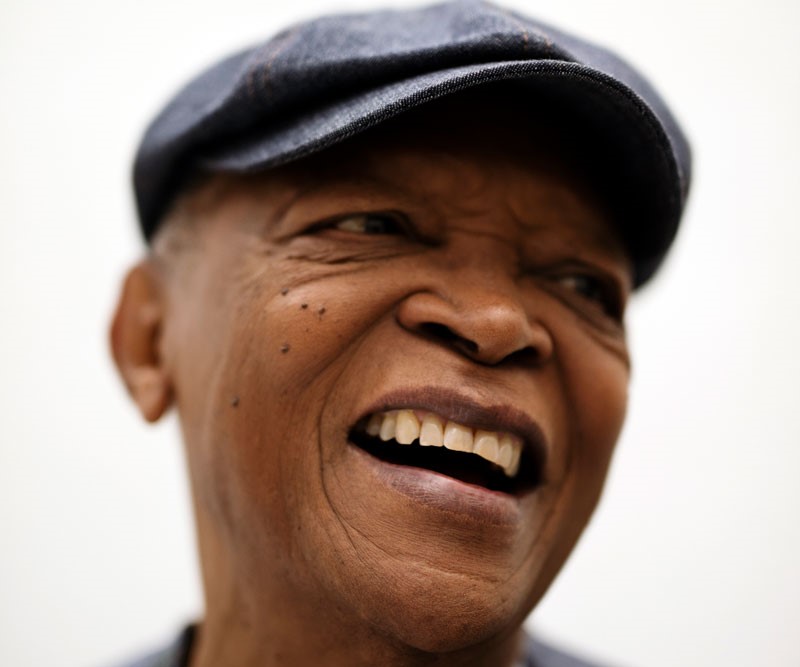
Hugh Masekela (photo: Brett Rubin)
Songs such as ‘Stimela’, on which he recounted the hardship of black migrant workers in South Africa’s coal mines, or ‘Soweto Blues’, which he wrote for his ex-wife Miriam Makeba to sing after the 1976 township massacre, chronicled the struggles and sorrows of his people. Yet his music was imbued with a resilient joy and a defiant hope that one day his country would be free.
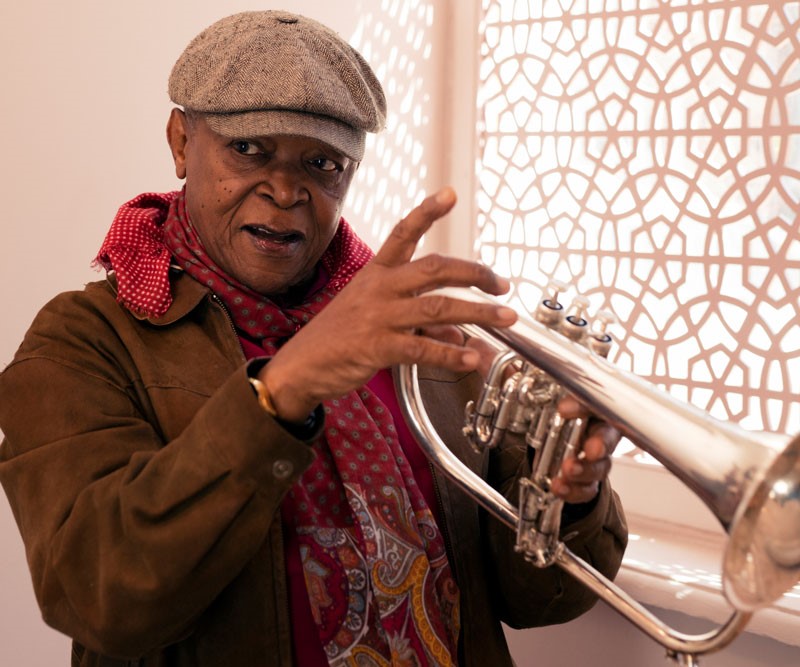
Hugh Masekela (photo: Brett Rubin)
By 1960 he was in exile in America, where Miles Davis gave him some advice that shaped his musical vision. ‘You’re just going to be a statistic if you play jazz,’ Davis told him. ‘But if you put in some of the stuff you remember from Africa, you’ll be different from everybody.’
The result was a glorious fusion of American jazz and African township rhythms which made him anti-apartheid’s premier musical ambassador and took him to number one in the American pop charts in 1968 with ‘Grazing In The Grass’.
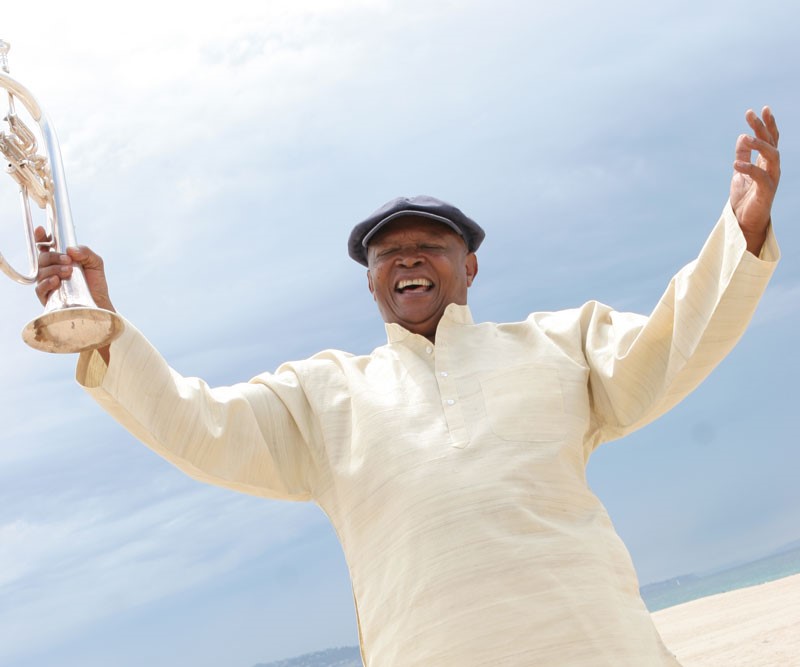
Over the next 50 years there were many ups and downs but the humanitarian message of hope triumphing over adversity never wavered in his music.
He eventually returned to South Africa in 1990 and became an avuncular elder statesman of the post-apartheid era, mentoring younger South African artists, even while battling cancer.
